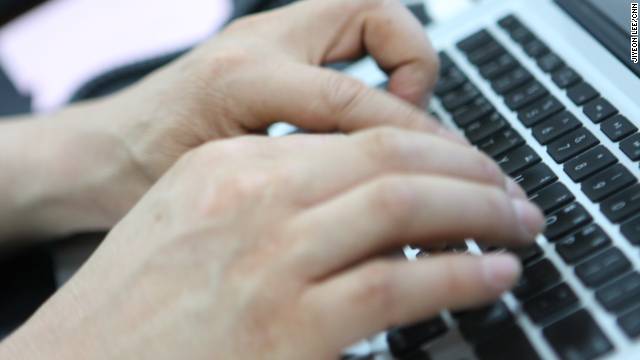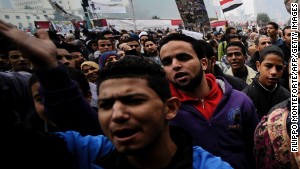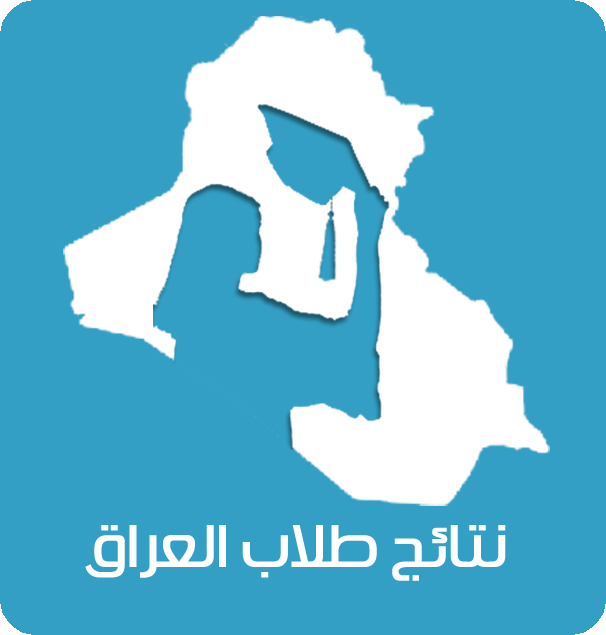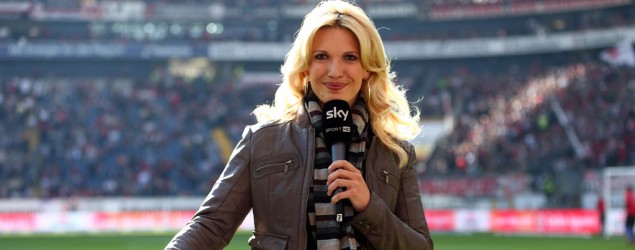الرئيسية
المشاركات باسم اخبار
إظهار الرسائل ذات التسميات اخبار. إظهار كافة الرسائل
إظهار الرسائل ذات التسميات اخبار. إظهار كافة الرسائل
10/4/2020
28/2/2016
16/6/2015
18/3/2014
Tourism Dollars Dry Up, Alongside Crimea’s Bank Funds
YALTA, Crimea — Many A.T.M.s in this sun-dappled seaside resort city in Crimea, and across the region, have been empty in recent days, with little white “transaction denied” slips piling up around them. Banks that do have cash have been imposing severe restrictions on withdrawals.
All flights, other than those to or from Moscow, remain canceled in what could become the norm if the dispute over Crimea’s political status drags on, a chilling prospect just a month before tourist season begins in a place beloved as a vacation playground since czarist times.
Even with the West imposing sanctions to punish Russia’s invasion of Crimea, President Vladimir V. Putin faces a far steeper financial liability as he pushes to annex the peninsula, which lacks a self-sustaining economy and depends heavily on mainland Ukraine for vital services, including electricity and fresh water.
“Ukraine can quite easily cut off Crimea,” said Oleksandr Zholud, an economist with the International Center for Policy Studies in Kiev, the Ukrainian capital. “From an economic point of view it looks like a sinkhole.”
PLAY VIDEO
VIDEO|1:44
CreditPool photo by Sergei Ilnitsky
Putin Announces Crimea Annexation
In his address to the Federal Council, President Vladimir V. Putin asked it to ratify the annexation of Crimea.
In January, the Crimean Parliament adopted a 2014 budget of about $540 million, of which about $300 million was expected to come from the central government in Kiev. Crimean officials in recent days have said they now expect Moscow to fill the gap.
The potentially large price tag has arisen at a time when Russia itself is bracing for a severe economic slowdown, making annexation a far more complicated calculation for Mr. Putin and his advisers despite huge public support for reclaiming primacy over Crimea.
Crimea and Russia have deep linguistic, historic and cultural ties, and the peninsula holds a nostalgic place in the minds of many Russians as a summer destination and popular retirement spot, where czars and Politburo chairmen kept vacation homes — including the last Soviet president, Mikhail S. Gorbachev, who was briefly exiled to his dacha in the Crimean town of Foros, overlooking the Black Sea, during a coup attempt in 1991.
Russia’s regional development minister, Igor N. Slyunayev, has offered a sobering assessment of the peninsula’s infrastructure needs.
“The peninsula is not self-sufficient when it comes to the entire group of vitally important resources — first of all, electricity and water,” Mr. Slyunayev said in a question-and-answer interview with the Russian newspaper Kommersant. “About 80 percent of water comes to its territory through the northern Crimean canal from the Dnieper River. Also, 80 percent of Crimea depends on imports of electricity.”
In a bleak bottom-line assessment that many residents here would dispute, Mr. Slyunayev said, “Today, our Crimea looks no better than Palestine.”
The authorities here have waved aside concerns about public salaries, pensions and other costs, saying Moscow will cover them. But while Mr. Putin and Russian lawmakers have made reassuring statements, including some promises of more than $1 billion in immediate aid, there are no guarantees.
Russia is facing its own fiscal challenges in the months and years ahead, as revenue growth from oil and natural gas is projected to slow precipitously and the Kremlin confronts big bills from salary increases for the police, the military and other public workers that preceded Mr. Putin’s return to the presidency in 2012.
The financial costs are just one reason that annexation is easier said than done.
Continue reading the main story
The faster you die, the more popular the game
- Staying home, connected to the world
- Spring cleaning who has access to your data
Fully absorbing Crimea is a potentially herculean undertaking, which would require issuing new passports, changing the currency to rubles from Ukrainian hryvnias, and integrating completely distinct systems for property records, taxes, legal disputes and more.
The process is also fraught with risks, including the possibility that the Ukrainian government could move to further isolate the geographically remote peninsula by shutting vital transportation lines.
There is no overland transportation link between Russia and Crimea, and building a bridge across the shortest waterway, near the Crimean city of Kerch, would take years and cost an estimated $3 billion to $5 billion.
The costs for Russia — and for Crimeans — could also rise sharply, experts said, if political instability disrupts the peninsula’s major industries, particularly tourism and banking, which are already suffering.
A.T.M.'s have been empty as banks, most based in mainland Ukraine, face obstacles delivering currency, and grapple with mounting concerns about long-term business risks. If world leaders refuse to recognize Russia’s annexation of Crimea, flights could be restricted for years, as they are in northern Cyprus, which has direct air links only with Turkey.
At a minimum, Kiev’s strong leverage over utilities and other vital services stands to force the Kremlin into negotiations with the new Ukrainian leaders whom Mr. Putin has denounced as illegitimate and has so far refused to meet.
Last week, in a meeting with the country’s top economic officials, including the ministers of finance and economics and the head of the central bank, Mr. Putin expressed his own concerns about Russia’s financial prospects.
“Let me say that the current and forecast growth rates the government has given cannot satisfy us in any way,” he said, according to a Kremlin transcript. “We must step up the pace of development.
“Above all, we need to maintain the existing general macroeconomic stability,” Mr. Putin said. “We need to be ready to respond rapidly to both internal and external risks — and they are not getting any fewer — ensure that the budgets at all levels are executed and keep inflation at an acceptably low level.”
Mr. Slyunayev, the regional development minister, said he believed that the government in Kiev would be reasonable and not cut off essential services but might begin charging for water and electric service. “Ukrainian authorities will not provoke a humanitarian crisis,” he told Kommersant.
While financial markets reacted with tentative calm to the Crimean secession vote, the economic sanctions announced by the United States and Europe, and the prospect of a renewed cold war with the West, present just the type of external risk that could destabilize the Russian economy at a moment of vulnerability, experts said.
One immediate risk is a continued decline in foreign investment, though the fear of sanctions may result in a positive effect for Russia by driving home assets that Russian citizens and businesses had stockpiled overseas.
“Private sector capital flight may have been partially neutralized by the return of official assets,” Timothy Ash, an analyst with Standard Bank, wrote in a note to clients on Monday offering analysis in the aftermath of the referendum here.
Some Crimeans said they were already feeling the financial sting from political instability.
As crowds in the cities of Simferopol and Sevastopol held raucous celebrations well into Monday morning after the vote, here in Yalta, Ihor B., the owner of a small travel business, went to bed with a growing sense of dread: The roughly two dozen bookings that he had received since the start of the year had all disappeared.
“I got 10 requests from Germany, and 10 assignments from Ukrainian agencies for Western tourists; a couple of requests from Dutch tourists and cruise ships,” said Mr. B, who asked that his last name not be used for fear of reprisal by the new Russian government. “At the moment, all of them, absolutely all of them, are canceled.”
Mr. B., whose two grown children live and work in Kiev, said the majority of tourists who visited Crimea came from mainland Ukraine. They are likely to go to Odessa or other destinations this year, because of fear over the political unrest, he said.
Boris Perederko, the deputy director of the Bristol Hotel here, said he supported the outcome of the referendum, even though guest bookings were down.
“This year will be a very complicated, very unclear year,” Mr. Perederko said. “A revolution has happened, figuratively speaking.”
As for Crimea’s future as a resort destination, he said: “People come here to spend their money and we try to earn this money. That’s normal. Now, it is just a moment of high suspicion.”
source :http://www.nytimes.com
source :http://www.nytimes.com
11/3/2014
Twitter posts land 2 Saudi men in prison
لاتنسون اضافة التعليقات


 Saudi's fight against change
Saudi's fight against change
 Arab youths in a post-Arab Spring
Arab youths in a post-Arab Spring
Twitter posts land 2 Saudi men in prison

File photo: Two men were found guilty in Saudi courts this week for, among other offenses, messages they posted on Twitter.
STORY HIGHLIGHTS
- One man sentenced to a decade in prison for posting pro-protest messages to Twitter
- A second man got eight years, convicted of insulting Saudi Arabia's king via Twitter
- Critics say it's all part of the kingdom's efforts to quash dissent
(CNN) -- Two men were found guilty in Saudi courts this week for, among other offenses, messages they posted on Twitter.
On Monday, one Saudi man was sentenced to 10 years in prison for using Twitter to encourage protests and undermine the country's leadership, according to Saudi Arabian state news agency SPA.
"The accused had sent invitations via Twitter to participate in protests and gatherings against the Kingdom," read SPA's statement, quoting Saudi Justice Ministry spokesman Fahad Al-Bakran.
Al-Bakran added how the unnamed man, already serving a three-year jail sentence, was convicted of utilizing websites that are "hostile to the government and that promote deviant ideologies." Saudi officials often use the phrase "deviant ideologies" when describing al Qaeda or al Qaeda-linked groups.
Source: CNN
 Saudi's fight against change
Saudi's fight against change Arab youths in a post-Arab Spring
Arab youths in a post-Arab Spring
On Sunday, another man, accused of insulting King Abdullah and inciting protests via social media sites like Twitter, was sentenced to eight years in jail.
According to SPA, he's also barred from travel and from posting messages on social media sites for eight years after his release.
The man, also unidentified by SPA, was found guilty of "inciting relatives of Saudis arrested for security reasons to protest their imprisonment by tweeting and via posting videos on sites like YouTube."
Al-Bakran added the man had been arrested once before for similar offenses, but was released after signing a pledge never to do so again.
Both sentences come just days after Saudi Arabia officially declared the Muslim Brotherhood to be a terrorist organization.
On Friday, the country's Interior Ministry announced that the Brotherhood, as well as the Islamic State of Iraq and Syria (ISIS), Al-Nusra Front and other groups had been formally designated terrorist organizations.
American detained in UAE over parody video speaks out
The statement also detailed the country's new, comprehensive anti-terror legislation, warning any Saudi or foreigner residing in Saudi Arabia they could be sentenced to heavy jail terms for joining extremist groups or fighting alongside them.
Many, however, maintain the new laws are a barely disguised effort to quash dissent, pointing to the fact that Friday's Interior Ministry statement also criminalized atheism, more specifically, any Saudi or resident of Saudi Arabia "propagating atheist ideologies by any means, or questioning the principles of Islamic faith."
"It's unfortunate that the statement comingles the (Saudi) government's ongoing intent to severely limit freedoms of expression and religion with its efforts to counter extremism and terrorism," said Dwight Bashir, deputy director for policy and research with the United States Commission on International Religious Freedom.
"It reinforces longstanding concerns that the Saudis will spare no expense to crush dissent," Bashir told CNN, "and punish non-conforming views, even if the views are protected by internationally-recognized human rights."
Bashir called the move to criminalize atheism "very troubling," adding it was "consistent with the way the Saudis masquerade 'insults to religious feelings' as a way of garnering support for other laws that seek to counter religious extremism and name specific entities as terror groups."
Saudi Arabia, which has jailed several prominent reform activists in the past two years, is consistently singled out and criticized for its human rights record.
In a statement from late February, Adam Coogle, a Saudi researcher for Human Rights Watch, wrote the new anti-terror legislation has "created a veneer of legality for ongoing human rights abuses by Saudi criminal justice authorities."
"The terrorism law," added Coogle, "is a vague, catch-all document that can -- and probably will -- be used to prosecute or jail anyone who criticizes the Saudi government and to violate their due process rights along the way."
http://www.cnn.com/ source:
الاشتراك في:
الرسائل (Atom)













